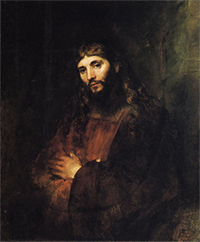
Once, in an off-hand remark, Fr. Louis [Thomas Merton] said to me, a novice under his direction: "You're superstitious." This was in response to some comment I had made. There's some truth in it. Sometimes I interpret things in what I see as an attitude of faith, but which in reality is perhaps not faith at all. Perhaps this is a Celtic tendency.
Like these troubled priests, most of them adult victims themselves of some early abuse. Now men of God, daily at the altar, hearing confessions, doing the Gospel. And tripped up, caught by their own flawed story.
I do not imply innocence, or see failure in responsibility not a fault, or ignore the evil involved, the harm done. I just find it mysterious.
There are 500,000 adult victims of sexual abuse in Kentucky, according to a Kentucky University poll a few years ago. So some of them became priests. Probably the past was never mentioned. Or noted. Just a past hidden or denied, as is, or was, the usual approach. The great denial shared by our society.
And then it caught up with them. Betrayed them. And by an amalgam of events all was revealed. And the revelation became a wildfire that spread among an amazed people. Unthinkable. Unheard of. Never dreamed.
Abraham Lincoln in his Second Inaugural Address, inscribed on the wall of the great Memorial in Washington, attributed the Civil War, then ending, to God's response to the evil of slavery. It would seem that his view was acceptable.
But when some evangelists attributed the New York tragedy of September 11th to an act of God in reprisal for our sins, there was an outbreak of outrage that men of God would say such a thing. And so they withdrew their statements with apology in a few days.
And here comes my Irish superstition. Again. Are these guilty priests victims for the rest of us? Expressions of God's displeasure? At American morals? Or, if you will, American Catholic morals? Is the shortage of priests something we had coming? That we don't deserve them if we pay small heed to them?
Since I am troubled with these thoughts, I have to deal with them. I do not assume you have similar thoughts. But such a thought might have flashed through your mind for a moment or two.
Can we read God into such tragic events as these? I don't think so. It is not that simple. Reading the Mind of God is not that easy.
So, instead of looking out, I look in. Rather than look at sad failure in others, I look at sad failure within me. And see in sorrow and suffering some result that I helped bring about by my own sins. For who of us is without sin?
And then I take the next step, and ask for God's mercy. On me and on everyone else. Or on all sinners. And pray God to accept all suffering in this world and my own modest share in it, as a sorrow for sin. In atonement. United to the merciless death we inflicted on a merciful Lord.
I do not see such prayers as idle. As a mere gesture. It is an expression, not of guilt, for I trust my sins are forgiven, but of repentance. An act of compunction.
We all so need the mercy of God. And we do so need to trust in it for us and for all.
This cannot be assumed, as already in action. Otherwise God would not raise a saint in our day and officially canonize her whose entrance in prayer into the psyche of our time led her to espouse the mercy of God in a dynamic way. And encouraged others to do the same. And her efforts were blessed by the Church. She saw a great need of trust in God's mercy. And if Faustina were not enough, we have Padre Pio and his bearing the very wounds of Christ in a union of love.
So the suffering of these priests does not so much make them victim souls immolated for themselves and all of us; it rather gives one more taste of the human scene. For, our beautiful world and our beautiful people, not to say our beautiful children, are all touched by the darkness of evil.
And against that there is no hope save in the grace of God. And the mercy of God.
And that is my response when I fear the Hand of God has touched us: God have mercy on us. "If these things happen to the green wood, what will happen to the dry?" (Luke 23:32) Amen.
More Teachings of Modern Cistercians...
Silence, St. Rafael Arnaz Baron
Sentences on Lectio Divina, Dom Bernardo Olivera, O.C.S.O. (Former Abbot General)
Trust in God, a Homily of Fr. Matthew Kelty
The Chosen, a Chapter Talk given by Sr. Martha Juskewycz at Mississippi Abbey.
Elements of Cistercian Formation, a Chapter Talk given by Abbot Brendan Freeman on September 5, 2004, at New Melleray Abbey at which participants of the Vocation Discernment Weekend Retreat were present.
Wild Geese, "Followship," the End of Time, a Homily of Fr. Matthew Kelty, for the 3rd Sunday of the Year (B) Nov. 17, 1985 (Mk 1:14-20)
The Place of Mary in Cistercian Life, Sr. Agnes Day of Mount Saint Mary's Abbey, Wrentham Massachusetts
Mary as Model of the Monk, Thomas Merton
| 


